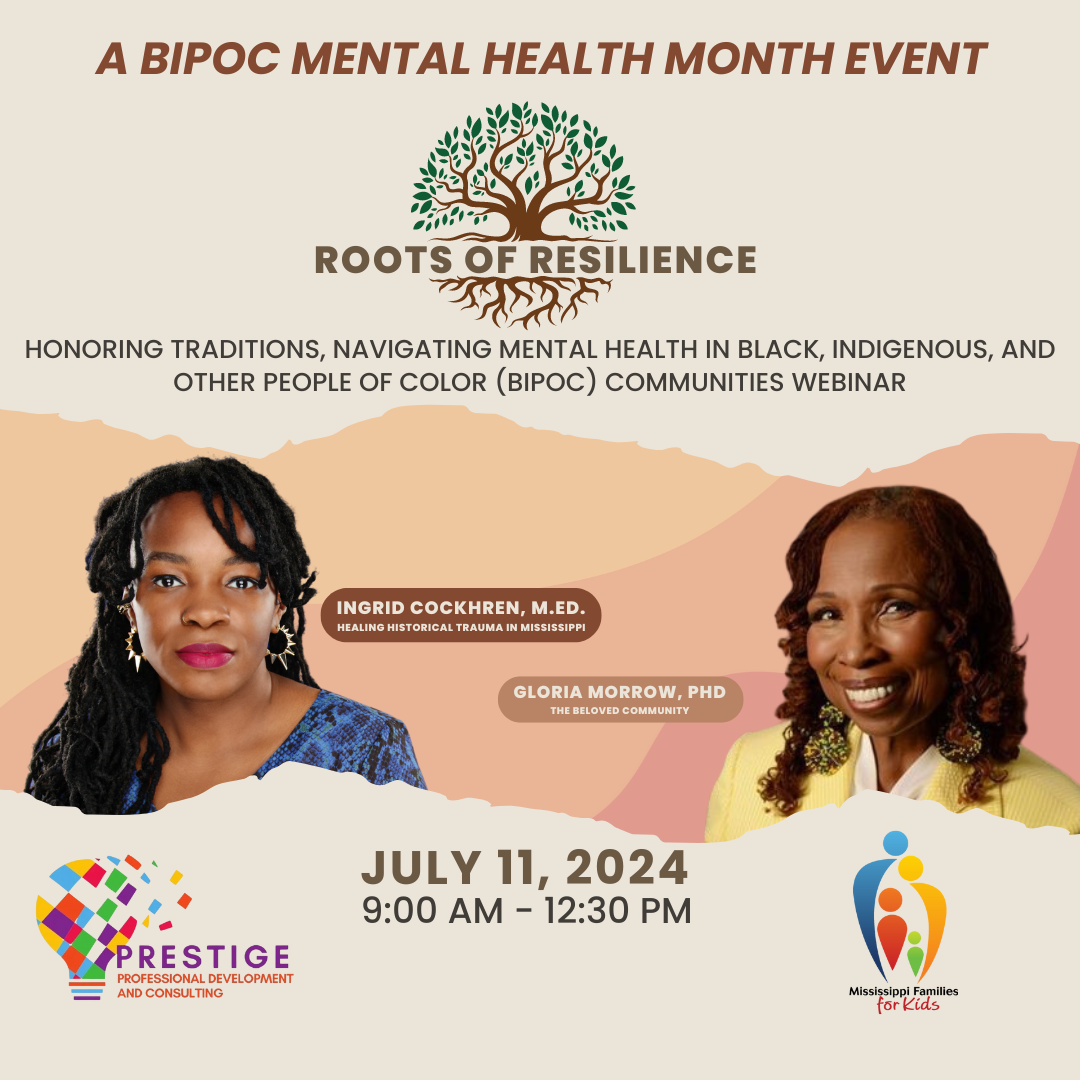BIPOC Mental Health Month Webinar Recap

Our first annual BIPOC webinar in partnership with Prestige Professional Development & Consulting was a success with nearly 150 professionals in attendance. Executive Director Nadeane Cattrell opened with an acknowledgment of July as National Black, Indigenous, and other People of Color (BIPOC) Mental Health Month. She offered some suggestions of ways to reduce the stigma of mental health in communities of color such as organizing awareness events, creating safe spaces for sharing, and educating family and friends about mental wellness. Consultant Jackie Chatmon recognized partners the Mental Health Association of Mississippi, Tobias & Co.Training and Consulting, and Rod Thurman, Technology Coordinator.
The webinar featured two dynamic speakers who are women of color. In the first session titled “Healing Historical Trauma in Mississippi,” Ingrid Cochkren, M.Ed. delved into the historical landscape of Mississippi, exploring its alignment with current racial disparities and their impact on health. Highlighting the Adverse Childhood Experiences study, Ingrid discussed the profound implications of trauma and early adversity, particularly in relation to race, racial identity, and institutional racism. Her focus was on the impact of trauma on minority mental health, emphasizing practices that foster community-level and collective healing. Additionally, insights are provided into Indigenous, African, and other traditional practices known to facilitate healing at individual, community, and policy levels.
In the second session titled “The Beloved Community,” Dr. Gloria Morrow, PhD, seamlessly translated historical trauma and resilience into an exploration of strategies for community healing. She addressed the significant impact of recent pandemics—COVID-19, economic distress, political upheaval, and racial injustice—on the mental, physical, and spiritual health of vulnerable communities, particularly within communities of color. Central to the discussion was the concept of building the beloved community through cultural humility. This approach aims to empower participants with strategies to support communities of color in healing from the deep-seated trauma they have endured.
Acknowledging the secondary trauma that service providers may experience when working with clients affected by racial trauma, we discussed essential strategies for self-compassion and sustainable self-care practices.
We hope that you will join us in July 2025 as we explore these critical topics and work towards creating healthier, more resilient communities through knowledge, empathy, and action.
